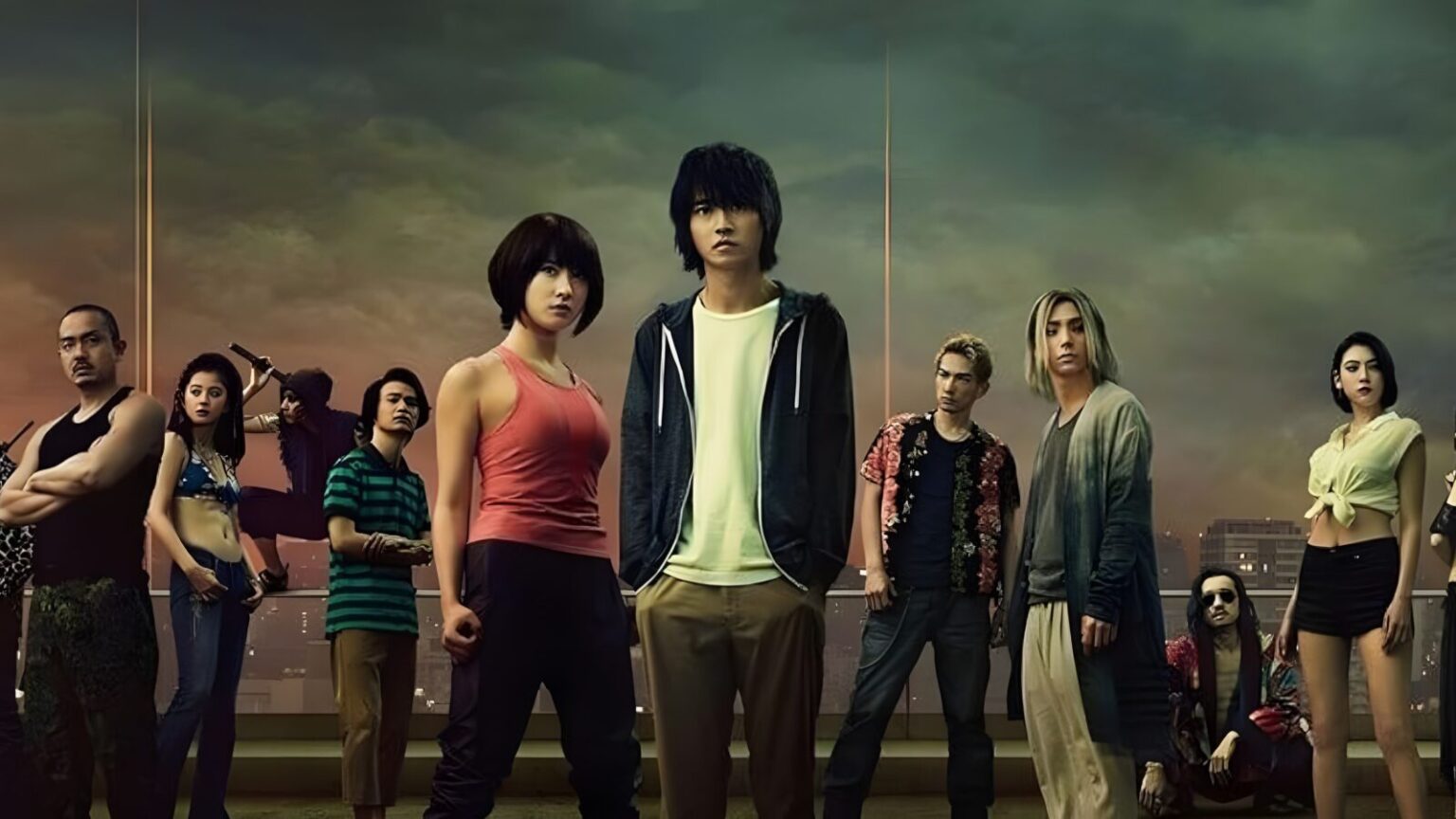TL;DR: Alice in Borderland Season 3 is chaotic, uneven, and unsatisfying. Fun in bursts, but the weakest season yet.
Alice in Borderland season 3
When Netflix first dropped Alice in Borderland back in 2020, I remember bingeing it in a single caffeine-soaked night, eyes wide, jaw occasionally on the floor, muttering things like “this is Squid Game but way more anime” before Squid Game was even a thing. It was brutal, stylish, surprisingly heartfelt, and leaned into the sort of absurdist-death-game energy I’ve been obsessed with since first sneaking late-night episodes of Battle Royale on a scratched DVD. Season 2 doubled down—bigger set pieces, louder explosions, higher body count. It wasn’t as lean or sharp as the first run, but it still had bite.
Season 3, though? That’s where things start to fray. Watching it felt a lot like watching Game of Thrones past Season 6: you can practically hear the sound of writers furiously inventing rules on the fly because the manga roadmap has run out. And while the first half of this new season teases a tighter, meaner return to form—smaller games, sharper stakes, an intimacy we hadn’t seen since Season 1—it eventually spirals into a messy, overstuffed finale that left me both frustrated and weirdly numb.
Let’s talk about why this season is such a strange beast.
The Promise of the Joker
Season 2 ended with a tantalizing tease: the Joker card. Fans of Haro Aso’s original manga knew the Joker existed, but not as some grand puppet master or new villain. The show, however, takes that dangling thread and pulls it into something much larger, reshaping the Borderland mythos into a half-philosophical, half nonsensical afterlife experiment.
The opening of Season 3 actually had me hopeful. Arisu and Usagi are out of the games, living in what looks like peace, being interviewed about the afterlife, finally able to breathe. But of course, the Borderland isn’t done with them. The show yanks them back, reintroduces us to a cast of new survivors, and promises a fresh round of blood-soaked spectacle. The Joker hovers over all of it like a cruel ringleader.
The setup works. It has atmosphere, mystery, even some emotional grounding. And the first batch of games? Pretty solid. They’re violent, creative, and—most importantly—followable. For a survival thriller, that’s everything. If the audience can’t track the rules, we can’t feel the tension. For a moment, it felt like Alice in Borderland was correcting course.
Where the Games Fall Apart
Then, somewhere around the halfway mark, things start to wobble. And by the finale? They collapse entirely.
The games stop making sense. Rules are introduced, then tossed aside. Mechanics shift mid-match. Strategies feel impossible to parse. And sure, you can argue, “Well, the Joker is chaos incarnate! That’s the point!” But that excuse wears thin fast. The fun of Alice in Borderland has always been imagining yourself in the arena, running the math, sweating the choices, thinking maybe—just maybe—you could survive. When the rules become opaque, that fantasy dies. You’re no longer immersed; you’re just watching nonsense unfold.
It reminded me of late-series Lost, when mysteries stopped feeling solvable and instead felt like narrative stalling. Except instead of hatches and smoke monsters, we’ve got exploding heads and convoluted card matches. By the time the final episode rolls around, the “spectacle” is dialed up to 11, but the logic is dialed down to near-zero. It’s loud, it’s flashy, but it’s also hollow.
The Character Problem
If the games aren’t working, the characters need to pick up the slack. Unfortunately, Season 3 stumbles hard here too.
New faces are introduced with intriguing hooks—there’s one arc in particular about whether people can really change that could’ve been devastating—but the show refuses to invest in them until the last possible second. Instead, we get clumsy backstory dumps right before a life-or-death moment. It feels cheap, like a manipulative trick to make us care just as the knife is about to drop. Compare that to Season 1, where characters felt vivid and tragic almost immediately, their deaths cutting deep because we already believed in their humanity. Season 3 loses that magic.
Arisu and Usagi aren’t spared either. Their relationship—arguably the emotional heart of the series—gets saddled with a melodramatic, cliché-riddled subplot that plays like a bad fanfiction draft. Worse, Arisu is suddenly positioned as a “Chosen One” figure to certain Borderland citizens, who themselves are barely sketched. It reeks of desperation, like the writers were searching for an epic finale hook but ended up with something shallow and unearned.
The only mildly interesting wrinkle is the show’s willingness to explore darker, more toxic pairings as a counterpoint to Arisu and Usagi’s squeaky-clean love story. It’s twisted, messy, and at least adds texture. But it’s not enough to salvage the larger narrative collapse.
The Spectacle Versus Substance Dilemma
Alice in Borderland Season 3 is never boring. Let me be clear about that. If you want blood-soaked action, elaborate set pieces, or the occasional gut-punch twist, it delivers. Netflix has thrown serious money at the production, and it shows in the glossy cinematography and inventive gore.
But the balance between spectacle and substance is off. Season 1 had both. Season 2 leaned too far into spectacle but at least had the manga’s backbone. Season 3? It tries to outdo itself with each episode, but without narrative coherence or meaningful character work, it all blurs into noise.
This is the Game of Thrones curse in action: when an adaptation outruns its source material, the safety net disappears. Suddenly, it’s all vibes and guesswork. And much like Thrones’ rushed final season, Alice in Borderland Season 3 proves that spectacle without soul just leaves ash in your mouth.
So, Was It Worth Watching?
Here’s the thing: I didn’t hate my time with Season 3. I yelled at the screen, I groaned at character decisions, I even laughed at some unintentional absurdities—but I was still engaged. There are flashes of brilliance, moments of horror, shards of emotional resonance. And if you’re already invested in Arisu, Usagi, and the bloody carnival of the Borderland, you’ll probably watch to the end anyway.
But if I stack this season against the show’s earlier highs? It’s not even close. This is the weakest outing yet, by far. The Joker promised chaos, and chaos is exactly what we got—but not the kind that thrills. The kind that numbs.
Verdict
Alice in Borderland Season 3 is a frustrating paradox: lavishly produced but narratively hollow, occasionally gripping but often incoherent. It starts strong with tight games and atmospheric tension, but quickly devolves into rule-breaking chaos, clumsy character arcs, and a finale that mistakes noise for payoff. Hardcore fans will still find enough gore and survival spectacle to justify the binge, but this third season falls victim to the very curse it teased: when a story runs past its source, it risks losing its soul.







